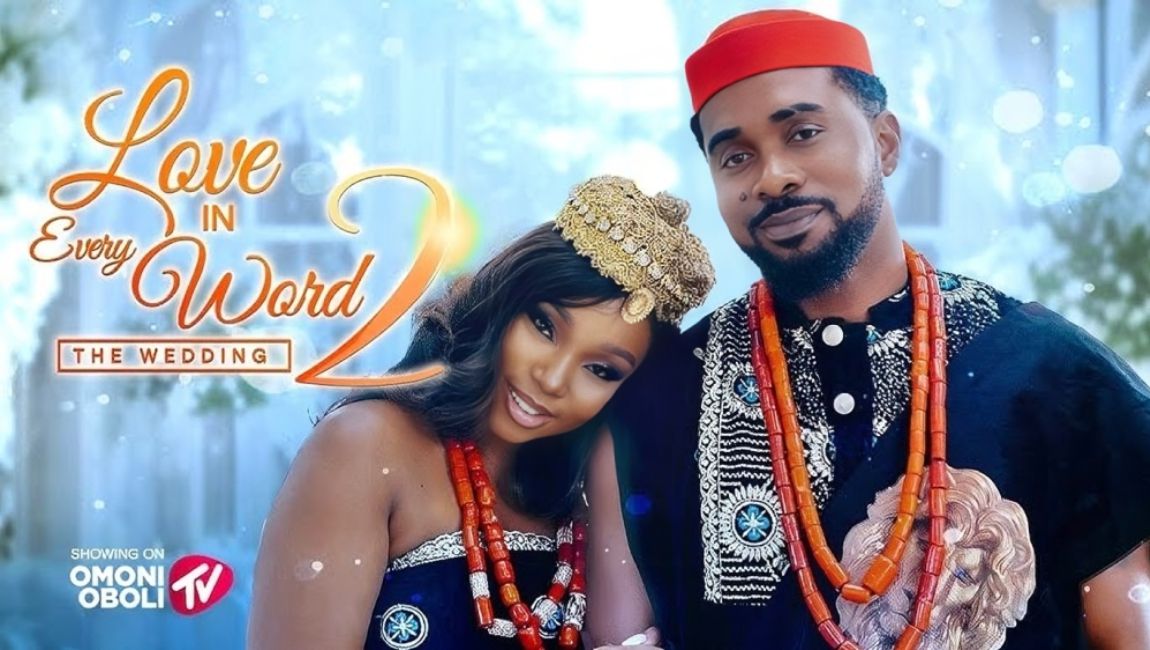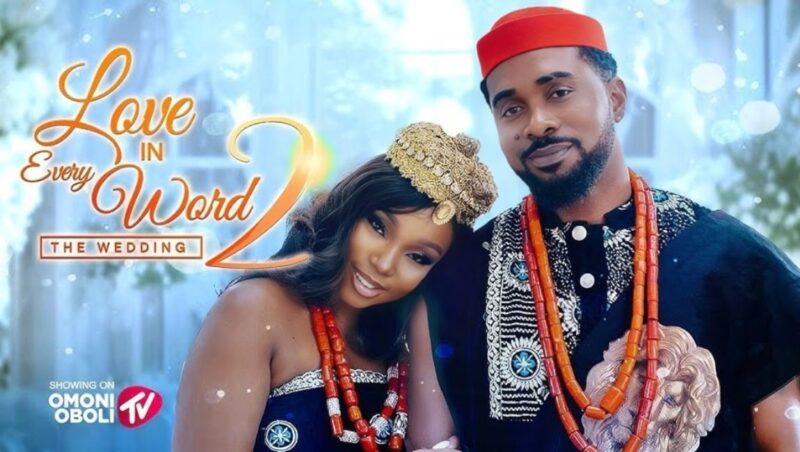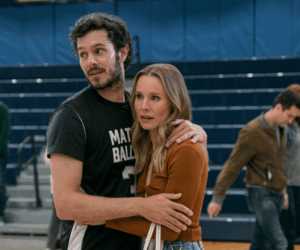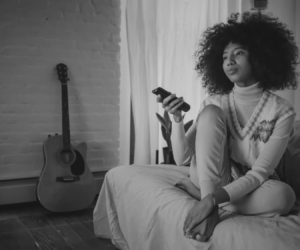
With ten million views in under a week, Bam Bam and Uzor Arukwe had social media streets in a chokehold.
Everyone suddenly wanted an Odogwu of their own, a man who shows up, showers you with gifts, and calls you “my wife” after 24 hours. Romantic, right? Or maybe a red flag wrapped in rose petals.
Viewers were charmed, some even enchanted, by Chief Obiora’s (Uzor Arukwe) grand gestures and Chioma’s (Bam Bam) gentle vulnerability.
Now, with the sequel Love in Every Word Part 2: The Wedding, Omoni Oboli attempts to expand that universe. The question, however, lingers: did we really need a part two?
ALSO READ: 15m views is no small feat – Presidency hails Oboli’s Love in Every Word YouTube success
A Quick Recap
In the first film, Chioma is a working-class woman enduring a toxic boss and a parasitic boyfriend who freely spends her money. At a wedding, she meets Chief Obiora, a 43-year-old money magnet with a heart (and wallet) wide open.
Within 24 hours, he declares his intention to marry her. It’s impulsive and a little absurd, but somehow, it’s entertaining.
Back in Lagos, Obiora follows up with an extravagant show of affection: traditional drummers, dancers, and singers just to request her phone number.
From there, it’s a love story on steroids, lavish gifts, endless compliments, and a steady stream of “I’ll take care of you.”
It’s charming… until you start to notice a few red flags here and there. Uzor Arukwe sells the role with charisma, and Bam Bam’s soft, feminine portrayal of Chioma feels so believable; we eat it up anyway.
The first Love in Every Word worked because it was simple.
ALSO READ: 10 Uzor Arukwe films you should watch
The sequel
Love in Every Word 2 opens with Odogwu meeting Chioma’s family, only to be told she’s “a bastard” and unfit for marriage.
Heavy stuff, except it all turns out to be a dream. When he wakes up, he’s suddenly speaking perfect English. For a moment, we thought maybe he’d taken a crash course in diction between scenes. But no, he goes right back to his rustic Igbo accent a few scenes after.
Chioma, on the other hand, is now a full-blown businesswoman with her own perfume line. The glow-up is real, except so are the brand placements.
Knorr billboards, GIG Logistics boxes, MTN MiFi (that somehow helps a call come through even before it’s switched on), this movie might as well have been titled Love in Every Ad.
Odogwu, of course, is still in full provider mode. Chioma mentions she’s struggling with logistics, and boom, he wants to buy a logistics company. There’s sweet, and then there’s please calm down, sir.
Then comes her ex, who shows up purely for conflict’s sake. He’s not there to deepen the story, just to remind us that drama must happen.
What Worked and Didn’t
If there’s one reason to sit through Part Two, it’s the acting. Uzor Arukwe’s performance as Odogwu remains a delight, funny, confident, and oddly lovable despite the walking red flags.
He carries the movie’s humour effortlessly. Bam Bam’s Chioma also feels more grounded this time; she’s less of a damsel, more of a woman trying to stand on her own feet, even if the movie doesn’t always let her.
But what follows is a series of glossy scenes that feel more like brand showcases than storytelling. Part Two sometimes feels trapped between romance and advertisement.
From Knorr billboards to GIG Logistics packaging and an MTN MiFi moment that defies logic. Product placement becomes its own subplot.
The film’s “conflict” arrives via Chioma’s ex, whose sudden reappearance adds no real depth. Meanwhile, Obiora’s mother wages her own battle against the “bastard” she refuses to welcome into the family, until, in true Nollywood fashion, one conveniently arranged vacation melts her heart.
The mother-son-fiancée reconciliation happens in a resort conversation so coincidental it borders on parody. But the film hurries toward its wedding climax, leaving no room for reflection on what these characters have actually learned.
READ: Why Omoni Oboli’s ‘Love in Every Word’ and Bam Bam’s performance are trending
Verdict
The real question remains: Did we need Love in Every Word Part 2? Honestly, no. The first film ended on a high, a satisfying “aww” moment that didn’t ask for a continuation. The sequel feels like an overextended Instagram caption. It takes a simple, heartfelt story and tries too hard to make it grand.
Still, credit where it’s due, Omoni Oboli knows how to keep her audience talking. Love it or hate it, Love in Every Word 2 is a conversation starter. It’s entertaining and full of that Nollywood charm we secretly can’t get enough of.
Would I recommend it? Absolutely, but with a side of self-awareness. Watch it for Uzor Arukwe’s charisma and Bam Bam’s growth. Just don’t expect the same spark that made part one special.
RECOMMENDED: Omoni Oboli says Nollywood tells more original stories than Hollywood








